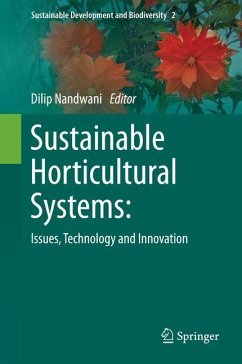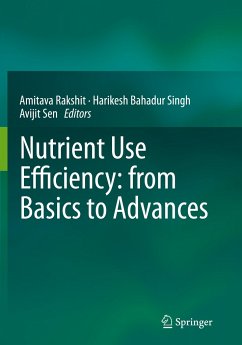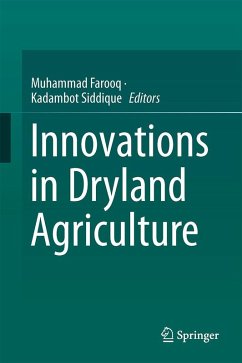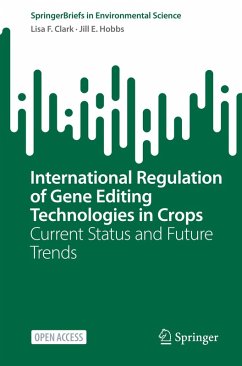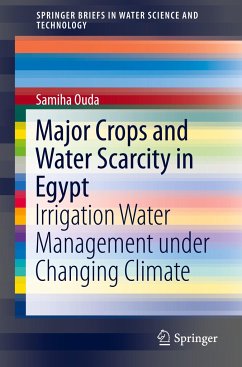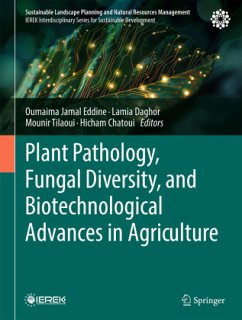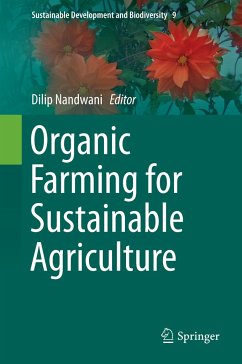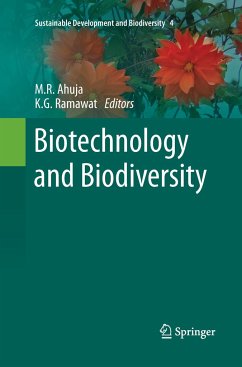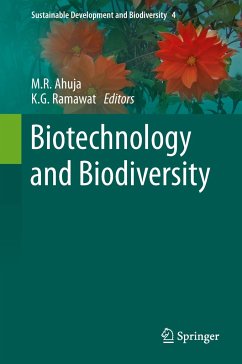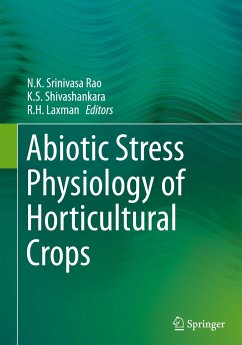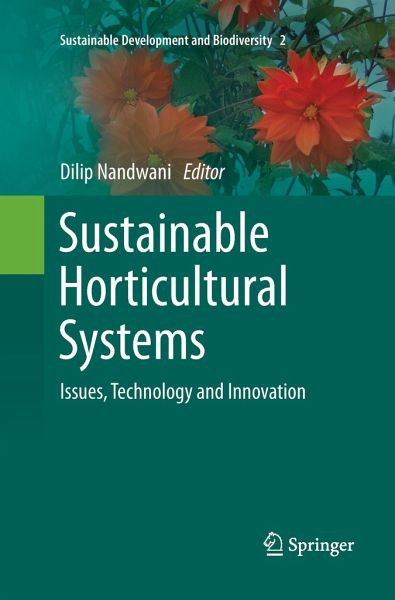
Sustainable Horticultural Systems
Issues, Technology and Innovation
Herausgegeben: Nandwani, Dilip
Versandkostenfrei!
Versandfertig in 6-10 Tagen
166,99 €
inkl. MwSt.

PAYBACK Punkte
83 °P sammeln!
Sustainable horticulture is gaining increasing attention in the field of agriculture as demand for the food production rises to the world community. Sustainable horticultural systems are based on ecological principles to farm, optimizes pest and disease management approaches through environmentally friendly and renewable strategies in production agriculture. It is a discipline that addresses current issues such as food security, water pollution, soil health, pest control, and biodiversity depletion. Novel, environmentally-friendly solutions are proposed based on integrated knowledge from scien...
Sustainable horticulture is gaining increasing attention in the field of agriculture as demand for the food production rises to the world community. Sustainable horticultural systems are based on ecological principles to farm, optimizes pest and disease management approaches through environmentally friendly and renewable strategies in production agriculture. It is a discipline that addresses current issues such as food security, water pollution, soil health, pest control, and biodiversity depletion. Novel, environmentally-friendly solutions are proposed based on integrated knowledge from sciences as diverse as agronomy, soil science, entomology, ecology, chemistry and food sciences. Sustainable horticulture interprets methods and processes in the farming system to the global level. For that, horticulturists use the system approach that involves studying components and interactions of a whole system to address scientific, economic and social issues. In that respect, sustainable horticulture is not a classical, narrow science. Instead of solving problems using the classical painkiller approach that treats only negative impacts, sustainable horticulture treats problem sources.



